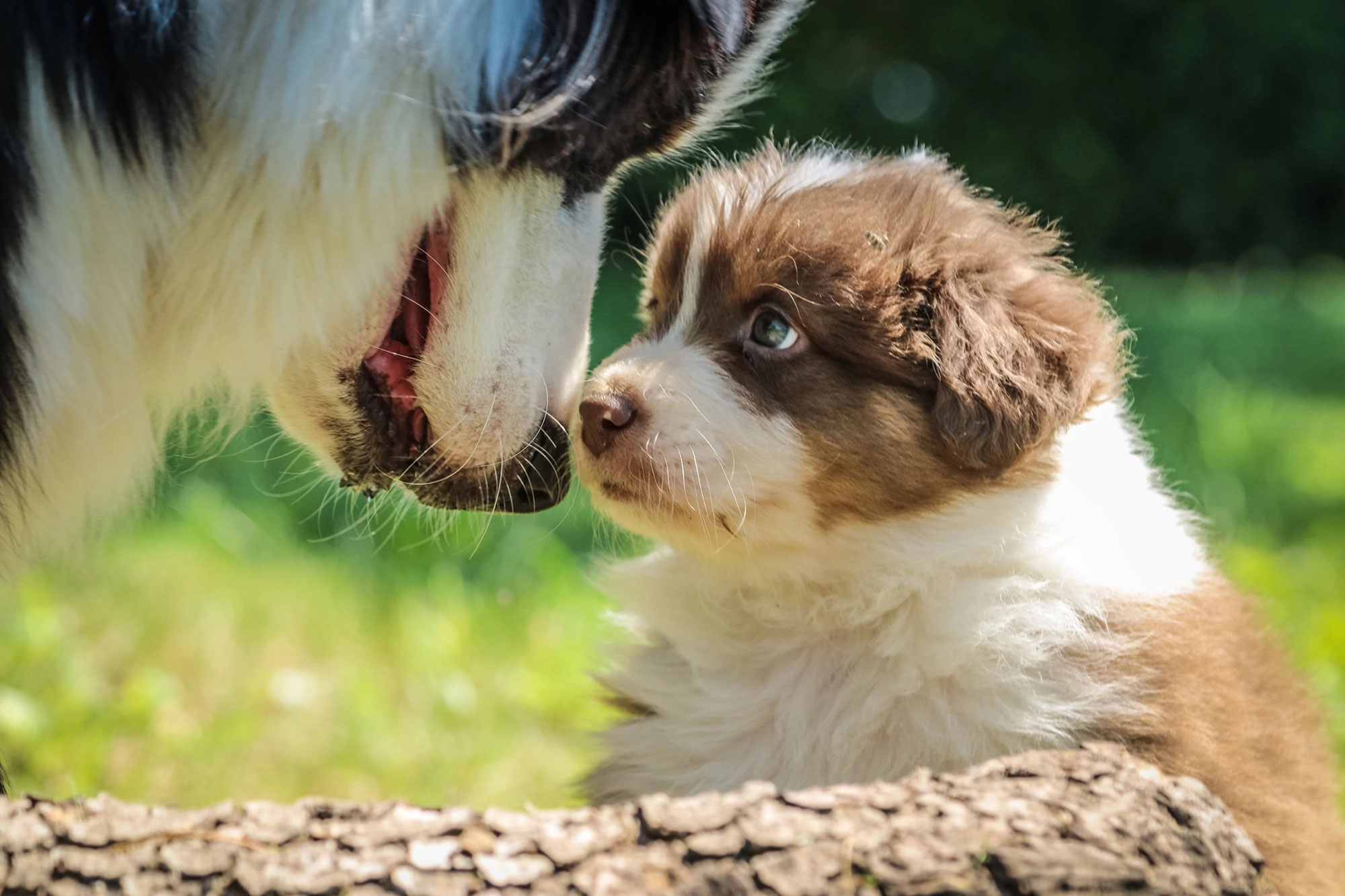If you are a first-time puppy owner, we’ve got you! While puppies will take a lot of time and effort no matter what, your first year together will be so much smoother and much more fun if you know how to avoid these common communication pitfalls.
It’s a whole new world to them!
The first thing puppies do is learn how to be a dog.
There’s a reason they are popular pets! Puppies are adorable and cuddly. We love to watch them discover new things and absorb the world around them. It’s important to remember, though, that while they are taking in their new environment, they are also trying to understand why behaviour they’d previously been taught is now getting a negative reaction.
Before they join our families, most puppies will have spent the first part of their lives learning how to be a dog from their parents and siblings. Dogs are excellent teachers of other dogs! It doesn’t take too long for puppies to figure out boundaries and expectations.
Then, when they join our human families and try to interact with us in the way they did with other dogs, they don’t understand why those behaviours are no longer appreciated. It’s often their first time living in a human household! They won’t know that there are NEW boundaries and expectations until we teach them.
Photo by Jametlene Reskp
Understanding the differences in communication
Humans, for our part, need to remember that natural puppy behaviours are not deliberate misbehaviour.
A puppy who mouths and bites, gets overexcited, and has toileting accidents isn’t being naughty; they just haven’t learned what you expect of them yet.
A puppy greeting another dog with rough play and jumping is using the manners they’ve learned for being a dog; they won’t know that greeting a human requires a different approach until you show them.
It’s up to you to show your puppy what is expected of them, and it’s important to do this in a way that your dog can understand. (This is why we teach you to speak Dog!)
Leadership means clear and consistent communication
When you adopt a puppy (or any dog) you are taking on a leadership role. They will be looking to you for cues of what is and isn’t desirable, even while you aren’t actively training them. If they read your behaviour as a series of conflicting messages, or they simply don’t understand what you want, they’ll start making their own decisions!
A good rule to follow: if you wouldn’t allow a two-year-old child to do it, don’t allow your puppy to do it.
Clear communication means choosing messaging that they can understand. Correcting a puppy’s behaviour after the fact will be ineffective, because their brains will not link the two events together in the way a human brain does. In fact, they might interpret your behaviour as irrational, and that can erode their trust in you. Yelling or physical aggression as a punishment are not only ineffective, they can lead to worse behaviours and insecurity as your puppy grows.
It’s far better to keep calm, and reward the behaviour you DO want.
Other needs to keep in mind
Puppies simply can’t understand the world like adult dogs can. Their brains are still growing, along with their bodies, and they can only hold so much new information each day. That means that training is going to take patience.
They also need lots of rest and toileting breaks!
Puppies will also need more management tools, like gates, crates, fences, and leashes than adult dogs.
Remember that even if your puppy slips up, testing the boundaries is normal. It’s how they learn! Keep calm, keep consistent, give them the leadership they need, and they’ll learn the new ropes.
Bark Busters can help you through every step of the way!
To speak with a trainer, call 1-866-418-4584, or type in your postal code below.
Find a Trainer
Want to learn more, or begin training? We can help, let us find the trainer nearest you so that you can reach out to them directly.





